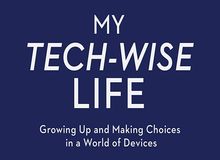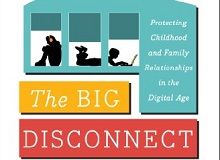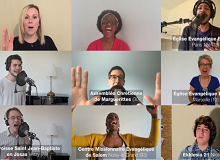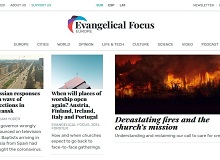


The National Christian Evangelical Alliance of Sri Lanka publishes a report analysing messages in social media against religious minorities.

This book enables us to extend the conversation and consider further how to put people not devices at the centre of our lives.

Jonathan Ebsworth of Tech Human shares practical tips. “Real embodied human relationships are messy and difficult, but it is where we can find true love and acceptance; even if the digital world feels more accepting”.

Europe and other regions in the world are trying to control the power of large companies such as Amazon, Google or Alibaba. But there is no agreement about what the rules should be, says expert Jonathan Ebsworth.

The population that identifies as non-religious has grown by about 10% in Morocco, a survey says. Disillusionment and a waning trust in religious leaders are among the main reasons.

The candidacy of the Côte d'Ivoire's current president has polarised society “Pray that the upcoming elections do not plunge our country further into violence”.

I had tried a number of solutions. Buying a new mattress. Reducing caffeine. Eating better. I didn’t know what else to try until the major culprit revealed itself: technology.

An interview with the new Trans World Radio (TWR) Farsi Ministry Director. “I pray God will again be honored and praised in my country, as He was during the reign of Darius”.

A Cuban pastor started using it on social media, after a pro-regime theologian appeared on national television denying the miracles of Jesus Christ.

How new tools can be used to securely lead mission teams.

Technology is fast encroaching on family primacy and we are seeing an increasingly premature loss of childhood innocence. The author encourages parents to be approachable, calm, informed and realistic.

In Europe, hundreds of churches have joined to sing versions of “The Blessing” in their own language. See some of the videos.

The National Council of Evangelicals of France collected the data of 580 churches. 8 in 10 congregations have used video conferences and other online tools during the Covid-19 lockdown.

“This is an attempt to offer an holistic view of how Christian practice and the coronavirus are connected”, says Jason Mandryk, the author of Operation World.

The new Evangelical Focus is more readable, adapts to all devices and shares our vision better. Readers will have to update their user and newsletters preferences.

More than 40 million people used Bible reading apps and websites, sharing around 15 million verses on Easter Sunday.

With internet and video saturation at an all-time high, Christians need more than a transmission of a message. A new platform offers training to churches in Europe.

In her first-ever Easter message, Queen Elizabeth II shared the Christian hope amid the coronavirus crisis.

The evangelical church in Mulhouse that suffered hundreds of Covid-19 cases always complied with the sanitary measures. Despite a media storm and fake news, the evangelical community proactively looked for solutions.

Let us listen carefully, think deeply, change appropriately to the messages from the media and speak relevantly through the media into our society.

Many have shared a heartwarming coronavirus testimony from Italy. But there are at least five elements that should make us doubt about its authenticity.

Prayer and pastoral care online, workshops, Instagram humor, are some of the responses to the first days of confinement.

Christians face the challenge of acting creatively as millions enter phase of confinement. “It might shape some of the future offers of our churches”.

In the midst of the coronavirus crisis, many may be forced to experiment with this kind of work in the coming months.

I lead a congregation in Rome that thrives on handshakes, greet kisses, and physical contact. This winter, the coronavirus has taught Italians the cautions of distance and isolation.

Las opiniones vertidas por nuestros colaboradores se realizan a nivel personal, pudiendo coincidir o no con la postura de la dirección de Protestante Digital.